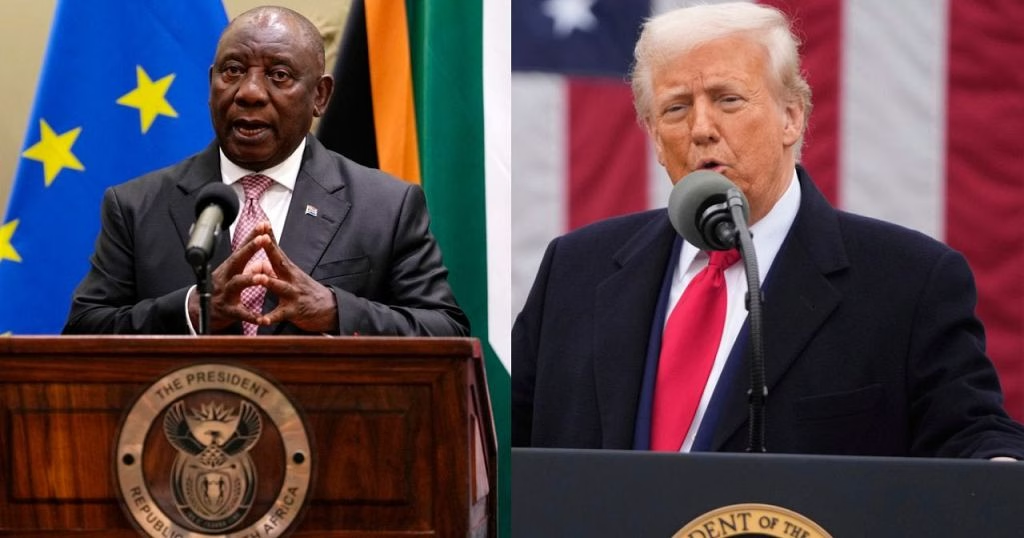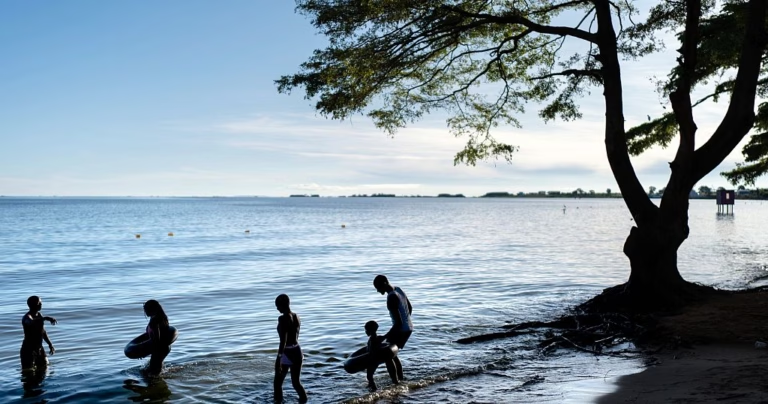
A Delicate Balance with the US
Political risk expert Menzi Ndhlovu characterized South Africa’s stance against US influence as a “hybrid strategy,” partially planned and partially reactive. He contended that Pretoria failed to anticipate the evolving foreign policy dynamics of the Trump administration, resulting in initial missteps in diplomatic engagements. However, Ndhlovu acknowledged that South Africa is addressing this through discreet diplomacy, engagement with the private sector, and calculated messaging to protect its economic interests.
Ndhlovu stressed the high stakes: over 600 US-based companies operate in South Africa, and Washington remains crucial for trade and financial dealings. Against this backdrop of economic dependency, he advised Pretoria to maintain a “prudent and restrained” approach rather than confrontation. He also debunked misconceptions about South Africa’s land reform and BEE policies, contending that external narratives often misrepresent the nation’s political and economic realities.
Entangled in Geopolitical Rivalries?
International relations pundit Sanusha Naidu situated the diplomatic rift within a larger global contest for power, positing that Washington might be using South Africa to illustrate the consequences for developing countries challenging Western dominance. He cited disputes over international forums like BRICS and G20, as well as Pretoria’s enhanced ties with China and Russia, as focal points in this global power chessboard.
WATCH THE ENTIRE DEBATE NOW: South Africa’s Assertion: A Courageous Move or Diplomatic Blunder?
Naidu criticized the “lopsided and selective” global order, drawing parallels between South Africa’s policies on race and the ongoing issues of equity in the US. He noted that the criticism levelled by US Secretary of State Antony Blinken, regarding South Africa’s G20 theme on sustainability and equity, reflects Washington’s unease concerning Pretoria’s global stance.
Additionally, he queried the effectiveness of traditional economic models in addressing systematic inequality, labeling South Africa’s ANC-DA coalition leadership as a “ precarious alliance” that could struggle to implement meaningful changes.
Calculated Caution or Missed Chance?
Dr. Philani Mthembu, executive director at The Institute for Global Dialogue, posited that South Africa’s diplomatic caution is a deliberate choice and not indicative of weakness. Unlike Washington, which has been vocal on its criticisms, Pretoria chooses to de-escalate and concentrate on economic stability and long-range strategic positioning.
Mthembu also highlighted the historical precedent of Nelson Mandela’s nuanced approach with the US, underlining that the nation’s interests should supersede external pressures. He dismissed the notion that the US’ criticism signifies an attack on South Africa, arguing that the US is reassessing its global alliances in a time marked by evolving geopolitics.
Regarding misinformation, Mthembu dismissed Elon Musk’s claims of “white genocide” in South Africa as “deliberate misinformation” designed to sow divisions. He insisted that South Africa remains dedicated to peacebuilding and national unity, advocating for attention to constitutional values rather than sensational narratives.
Into the Future
With the ongoing shifts in global power dynamics, South Africa is at a pivotal point in its diplomatic strategy. While some view its foreign policy as a fearless pursuit of African sovereignty, others caution that it may lead to detrimental long-term economic and strategic consequences.
The issue at hand: Is South Africa forging a unique role in international diplomacy or does it risk unnecessary isolation in a world becoming increasingly fragmented?






